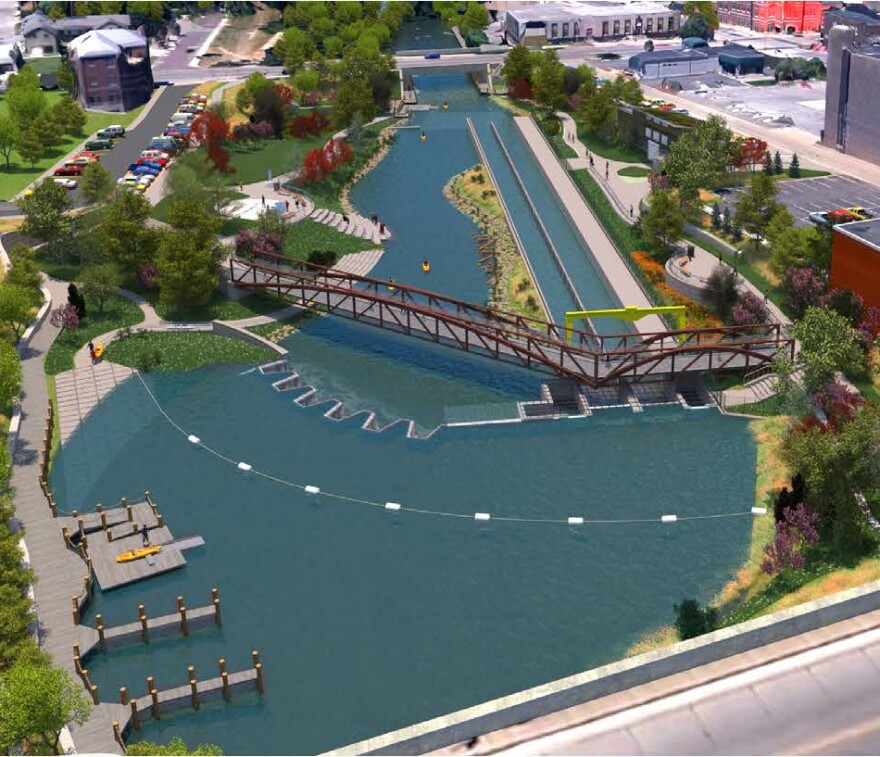After years of planning and legal delays, the FishPass Project in Traverse City is officially moving forward.
That announcement comes after the city, the U.S. Army Corps of Engineers and a local construction company finalized a contract.
FishPass will replace the Union Street Dam in the Boardman-Ottaway River in downtown Traverse City. Officials say the barrier will use technology to let "desirable" species pass while blocking invasive species like sea lamprey.
The Michigan Department of Natural Resources and the Grand Traverse Band of Ottawa and Chippewa Indians will work together to determine which species are "desirable" and allowed passage through the barrier.
The DNR has also committed to no salmon or steelhead passage — both introduced species — for the first 10 years FishPass is in place.
City of Traverse City officials say construction will begin this spring with "wet" work in the stream, like dam replacement and development of the channel for fish passage.
Expected costs for "wet" work have increased from $19.3 million to $23.2 million, according to a press release from the city. "Dry" work costs are also expected to increase, though amounts haven't yet been finalized.
Officials say construction is expected to begin in June 2024 with all major elements complete by 2027. According to the city, the new structure is designed to last 75 to 100 years.


